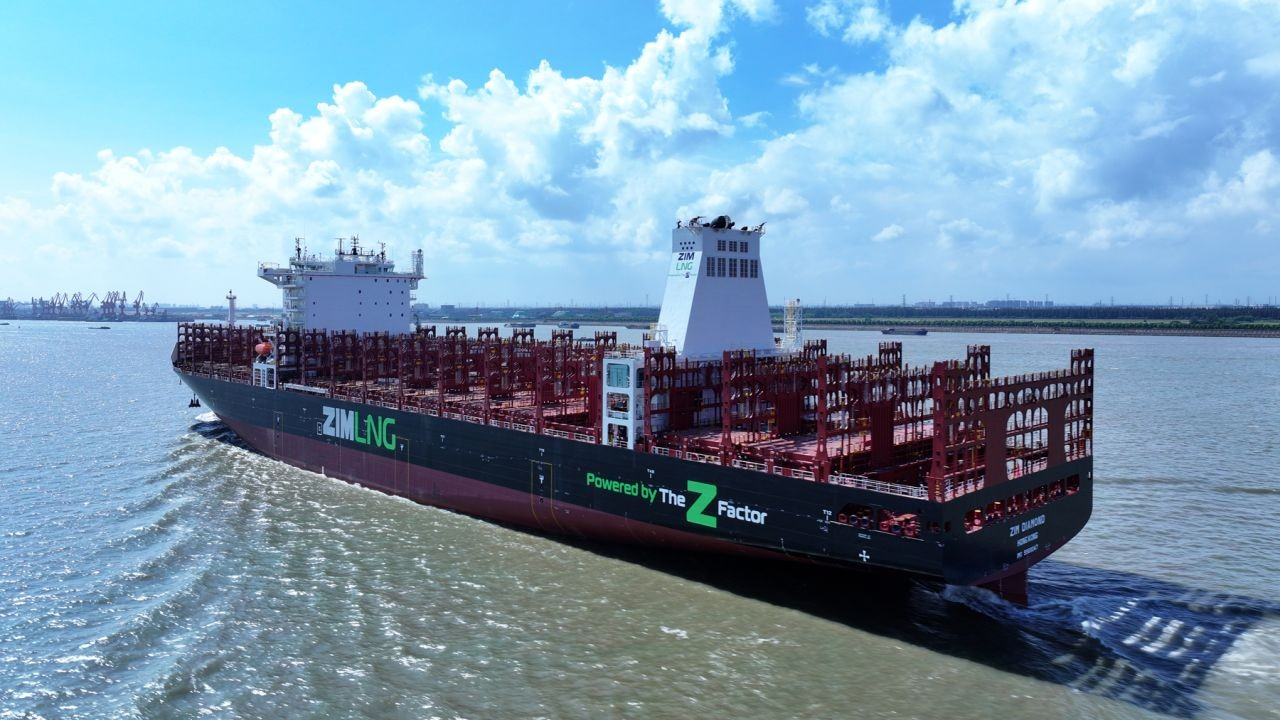Taking into account the current market conditions affected by the reciprocal tariffs imposed by the United States, Israeli shipping company ZIM will temporarily suspend its route from central China to the West Coast of the United States. The route originally started in July 2024 with a 13-day service from Ningbo to Los Angeles.

ZIM said it would continue to monitor market developments closely and make recommendations on further arrangements for the route in due course.
In addition, due to slowing trade demand, Taiwanese shipping company T.S. Lines has also closed routes connecting southern China ports with Los Angeles.
The number of Chinese-built/operated vessels serving the major U.S. ports of Los Angeles and Long Beach is expected to drop significantly as U.S. President Trump imposes huge tariffs on Chinese-made goods.
On April 17, U.S. time, the U.S. Trade Representative’s Office (USTR) announced specific restrictive measures to be taken following the 301 investigation into China’s shipbuilding, maritime, and logistics. The new measures clarify that there will be no fees for LNG carriers. The charging structure for other types will not be superimposed, and will be charged in the following order (choose only one):
- Charges for non-U.S.-built car carriers: $150 per CEU;
- Charges on Chinese shipowners and operators: $50 per net tonne for arriving vessels; increasing by $30 per year from 2026 to 2028, to a maximum of $140 per net tonne. Each vessel will be charged up to five times per year, with no exemptions.
- Charges for Chinese-built ships (non-Chinese shipowners or operators): The higher of two billing methods. Based on net tonnage, a fee of $18 per net ton is levied on arriving ships; increasing by $5 per year from 2026 to 2028, up to a maximum of $33 per net ton. Based on the number of containers, a fee of $120 is levied on each unloaded container; increasing by $33, $42, and $55 per year from 2026 to 2028, up to a maximum of $250. Each vessel is charged up to 5 times per year. Various exemptions are available.
Just a few days before USTR announced the new measures, ZIM just announced that it would introduce 10 11,500TEU LNG dual-fuel powered container ships on a long-term charter basis, with a total value of approximately US$2.3 billion. The 10 container ships were provided by Containers Ventures Holdings, an affiliate of TMS Group, and a shipping company under Kenon Holdings, the largest shareholder of ZIM. The buildings will be all built by the Chinese shipbuilder Zhoushan Changhong International and will be delivered from 2027 to 2028.
As one of the world’s leading liner companies, ZIM’s main business is to provide transportation services on major international routes for customers all over the world, and currently operates about 130 vessels with a capacity of about 777,000 TEU.
Although ZIM announced the suspension of relevant routes, its fleet has ships built in China. Therefore, no matter how it responds, USTR’s port fees will have an impact on it.
According to data from maritime consulting firm Drewry, global container port throughput is expected to fall by 1% as a direct result of U.S. trade policy. This will be the third decline in global container shipping demand since Drewry began recording the data in 1979. The first two declines were 8.4% and 0.9% during the 2009 financial crisis and after the outbreak of the COVID-19 pandemic in 2020.


